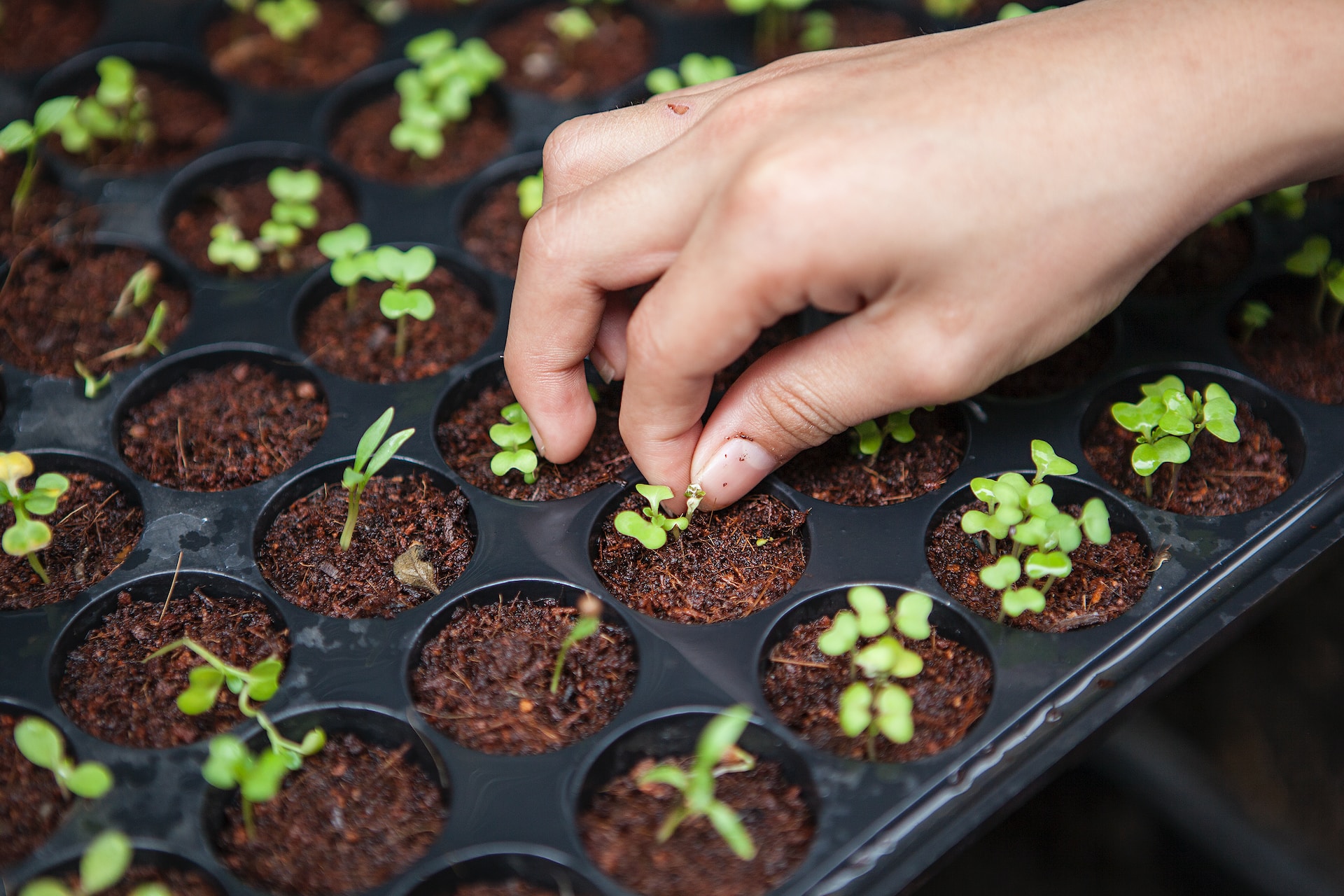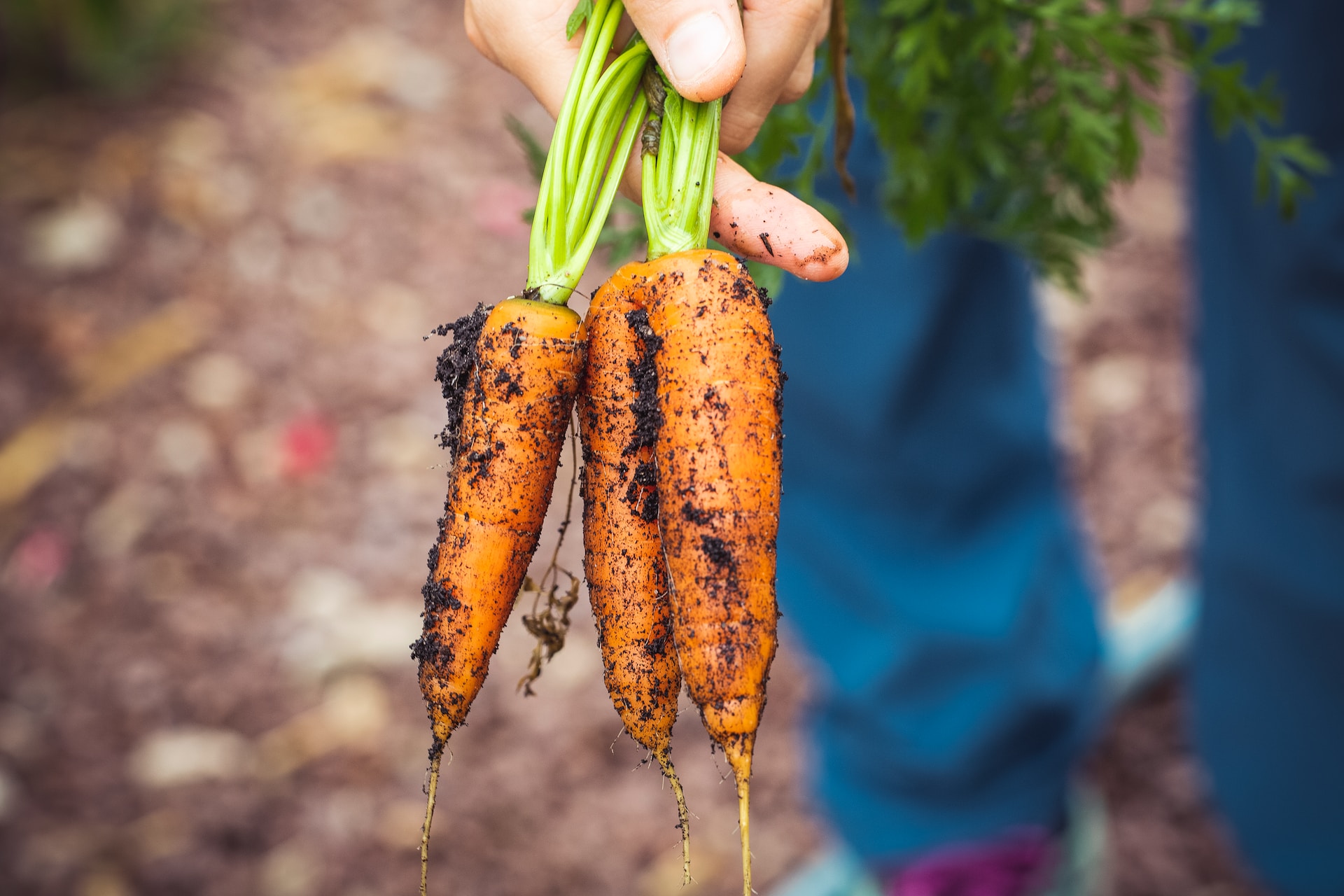Gardening has seen a remarkable resurgence in recent years, with more and more individuals turning to their backyards or even balconies to cultivate their own vegetables. The act of growing one’s own food has transcended being just a trend and has become a meaningful and fulfilling endeavor for many. In the midst of this growing movement, an intriguing question arises: How do people truly feel when they consume vegetables that they have lovingly nurtured and harvested from their own gardens?
This question delves into the emotional connection that individuals experience with their plants and the impact it has on their overall well-being. There is something profoundly satisfying about witnessing the growth and progress of a seedling that you planted with your own hands, carefully tending to it as it flourishes into a bountiful vegetable. The joy that arises from this connection with nature is difficult to put into words; it’s a deep-seated appreciation for the beauty of life and the intricate cycles of the natural world.
The act of gardening also empowers individuals and instills a sense of self-sufficiency. By taking control of their own food production, gardeners experience a profound shift in their relationship with what they consume. There is an undeniable feeling of empowerment that comes with knowing exactly where your food comes from and having the ability to make informed choices about what you nourish your body with. It’s a powerful affirmation of personal agency and a gentle rebellion against the industrialized food system.
Furthermore, the emotional benefits of growing and eating homegrown vegetables extend beyond empowerment and self-sufficiency. Freshly harvested produce not only provides superior taste and nutritional value, but it also brings about a profound sense of satisfaction and well-being. When you bite into a carrot or savor the flavor of a tomato that you grew with your own hands, there’s a unique sense of pride and accomplishment that fills your heart. It’s a celebration of your efforts and a validation of your green thumb.
In addition to the personal joy that gardening brings, it also creates opportunities for community building and sharing. Communal gardens and shared harvests foster connections among like-minded individuals, allowing them to bond over their shared love for gardening. The act of sharing homegrown vegetables with friends, family, and neighbors not only strengthens these social ties but also generates a deep sense of happiness and fulfillment. It’s an act of generosity, a way to nourish both bodies and souls.
In conclusion, the emotional impact of consuming vegetables grown in one’s own garden is profound and multi-faceted. From the joyous connection with nature and the feelings of empowerment and self-sufficiency to the health benefits and emotional well-being, there’s no denying the positive influence that gardening has on individuals. So, if you’ve ever considered starting your own vegetable garden, perhaps it’s time to embrace this rewarding experience and savor the incredible emotions that arise when you bite into that first homegrown vegetable.
The Joy of Connection with Nature
There’s a profound joy that emerges when individuals engage in the act of growing vegetables in their own gardens. It goes beyond the simple pleasure of watching plants grow; it’s a deep and meaningful connection with nature itself. Here, we’ll delve into the various facets of this joyous connection and explore the emotional impact it has on individuals.
Nurturing Life from Seed to Harvest
When you sow a seed into the soil and witness it sprout and grow, there’s an indescribable sense of wonder and awe. It’s a tangible reminder of the miracles that occur in the natural world every day. As you tend to your plants, carefully watering, weeding, and protecting them, a bond forms between you and the growing life in your garden. It’s a relationship built on patience, care, and trust, resulting in a deep sense of fulfillment when you finally reap the fruits of your labor during harvest time. The joy that comes from nurturing life, witnessing growth, and being an active participant in the circle of life is truly unparalleled.
Finding Solace in Nature’s Rhythms
In a fast-paced and technologically-driven world, gardening offers a sanctuary, a retreat into the soothing embrace of nature. The simple act of working with soil, feeling the earth beneath your fingertips, and breathing in the fresh scent of plants provides a much-needed respite from the chaos of daily life. Gardening allows individuals to reconnect with the natural rhythms of the Earth – the changing seasons, the ebb and flow of life cycles. It’s a grounding experience that brings a sense of calm and tranquility, reminding us of the beauty and simplicity that can be found in the natural world.
Witnessing Growth and Progress
The excitement and joy that come from watching your plants grow and thrive cannot be understated. From the first signs of green poking through the soil to the flourishing leaves and vibrant blooms, every stage of growth brings a unique sense of gratification. There’s a deep sense of pride and accomplishment in seeing your plants overcome challenges, such as pests or adverse weather conditions, and emerge stronger and more resilient. This emotional journey of witnessing growth and progress creates a bond between you and your garden, fostering a sense of appreciation and gratitude for the wonders of nature.
Whether it’s the delicate petals of a flower or the crisp, leafy greens of a vegetable, the joy of connection with nature is a profound experience. Gardening offers a way to tap into this joy, allowing individuals to immerse themselves in the wonders of life, find solace in the rhythms of nature, and revel in the growth and progress of their plants. It’s a reminder that we are part of something greater, a celebration of the intricate and awe-inspiring world that surrounds us.
Empowerment and Self-Sufficiency
Gardening is not just about cultivating plants; it’s a transformative journey that empowers individuals and instills a deep sense of self-sufficiency. Let’s explore the various dimensions of this empowerment and how growing one’s own vegetables can lead to a profound shift in mindset and lifestyle.
Taking Control of Food Production
In a world where our food system is often distant and opaque, gardening offers a refreshing alternative. By growing your own vegetables, you take control of your food production from start to finish. You become intimately involved in every step, from selecting the seeds or seedlings to nurturing the plants and finally harvesting the ripe produce. This level of involvement fosters a sense of agency and empowerment, allowing you to make conscious choices about the quality and sustainability of the food you consume. It’s a powerful act of reclaiming sovereignty over your nourishment and a step towards a more self-reliant lifestyle.
Building Confidence and Skill Development
Gardening is a skill that requires knowledge, practice, and patience. As you embark on your gardening journey, you inevitably encounter challenges, setbacks, and successes along the way. Each triumph over a stubborn weed or the successful propagation of a new plant species bolsters your confidence and nurtures a sense of accomplishment. The more you engage with gardening, the more you develop a range of skills, from soil preparation and plant care to pest management and harvesting techniques. This newfound expertise not only contributes to your personal growth but also enhances your sense of self-sufficiency, knowing that you possess the knowledge and skills to sustainably grow your own food.
Cultivating a Sustainable and Resilient Lifestyle
Gardening has the power to inspire a shift towards a more sustainable and resilient lifestyle. By growing your own vegetables, you reduce your reliance on industrialized agriculture, which often relies heavily on synthetic fertilizers, pesticides, and long-distance transportation. Instead, you embrace organic and regenerative practices, nurturing the soil, and working in harmony with nature. This commitment to sustainable living extends beyond your garden, influencing other areas of your life, such as waste reduction, composting, and water conservation. Through these actions, you actively contribute to a healthier and more resilient environment, while also setting an example for others to follow.
The empowerment and self-sufficiency that come with growing your own vegetables are truly transformative. By taking control of your food production, building confidence through skill development, and cultivating a sustainable lifestyle, you embark on a journey towards a more empowered and resilient way of living. Gardening becomes a powerful tool for personal growth, enabling you to make informed choices about your food, develop essential skills, and actively participate in shaping a more sustainable future.
Health Benefits and Emotional Well-being
Growing and consuming vegetables from your own garden not only offers a sense of empowerment but also provides numerous health benefits that positively impact your emotional well-being. Let’s explore how homegrown vegetables contribute to a healthier lifestyle and enhance your overall sense of happiness and fulfillment.
Nutritional Advantages of Freshly Harvested Produce
One of the most significant benefits of homegrown vegetables is their superior nutritional value. When you grow your own vegetables, you have the opportunity to harvest them at peak ripeness, ensuring maximum nutrient content. Unlike store-bought produce that often travels long distances and may spend days or weeks in transit, homegrown vegetables are fresh and rich in vitamins, minerals, and antioxidants. Consuming these nutrient-dense foods supports your overall health and vitality, providing a natural boost to your physical and mental well-being.
Connection between Food Origin and Emotional Well-being
There is a deep psychological connection between knowing the origin of your food and experiencing emotional well-being. When you grow your own vegetables, you have a direct relationship with your food, from seed to plate. This connection instills a sense of confidence and trust in the quality and integrity of what you consume. Eating the fruits of your labor brings a unique sense of satisfaction, knowing that you have nourished your body with wholesome, pesticide-free produce. This connection to your food fosters a deeper appreciation for the nourishment it provides, enhancing your emotional well-being and creating a positive relationship with the act of eating.
Healthier Diet, Happier Mind
The old adage “you are what you eat” holds true when it comes to the relationship between diet and emotional well-being. A diet rich in fresh vegetables, particularly those grown in your own garden, has been linked to improved mental health outcomes. Consuming a variety of colorful, nutrient-dense vegetables can positively impact your mood, reduce stress levels, and enhance cognitive function. The abundance of vitamins, minerals, and antioxidants found in homegrown vegetables supports brain health and contributes to a balanced emotional state. By nourishing your body with wholesome, homegrown produce, you provide the building blocks for a happier mind and a more positive outlook on life.
Therapeutic Benefits of Gardening
The act of gardening itself has been recognized as a therapeutic and stress-relieving activity. Engaging in gardening promotes mindfulness, allowing you to be fully present in the moment as you tend to your plants. The physical activity involved in gardening releases endorphins, which elevate mood and reduce feelings of anxiety and depression. The connection with nature, the satisfaction of nurturing life, and the calming effect of being surrounded by greenery all contribute to a sense of tranquility and emotional well-being. Gardening can be a form of self-care, providing a sanctuary where you can find solace, rejuvenation, and a renewed sense of inner peace.
Community and Sharing
One of the remarkable aspects of growing vegetables in your own garden is the sense of community it fosters and the joy that comes from sharing your bountiful harvest with others. Let’s explore the profound impact that community and sharing have on your gardening experience and emotional well-being.
Communal Gardens and Shared Harvests
Communal gardens provide a unique opportunity for individuals to come together, share resources, and collectively cultivate a green space. Engaging in a communal gardening project creates a sense of camaraderie and belonging as you work alongside like-minded individuals, united by a shared love for gardening. The exchange of knowledge, tips, and experiences strengthens the community bond and deepens your connection with both nature and fellow gardeners. Additionally, communal gardens often have shared harvests, where participants pool their produce for distribution among the community. This act of sharing not only ensures that everyone benefits from a diverse array of vegetables but also fosters a spirit of generosity and reciprocity.
Joy of Sharing Homegrown Produce
The act of sharing your homegrown vegetables with others is an incredibly rewarding experience that brings immense joy. Whether you gift a basket of freshly harvested tomatoes to your neighbor or organize a small community event centered around sharing homegrown produce, the impact is profound. Sharing your harvest is an act of generosity that spreads happiness and gratitude. It creates a sense of interconnectedness within your community, forging bonds and fostering a culture of sharing and abundance. Witnessing the delight on someone’s face as they savor a tomato or enjoy a salad made from your homegrown greens is a truly heartwarming experience that reinforces the emotional rewards of gardening.
Contributing to the Community
Growing your own vegetables not only benefits you personally but also allows you to make a positive contribution to your community. By sharing your homegrown produce, you provide access to fresh, nutritious food for others, particularly those who may not have the means or opportunity to grow their own. This act of contribution and generosity enhances your sense of purpose and fulfillment. It’s a reminder that your gardening efforts extend beyond your own backyard, making a difference in the lives of others. Furthermore, the act of sharing creates opportunities for meaningful connections and conversations, fostering a vibrant and supportive community where people come together to celebrate the beauty of nature and the bounty of their collective gardens.
Conclusion
The experience of growing and consuming vegetables from your own garden is a journey filled with profound emotions and rewards. Throughout this exploration, we have discovered the joy of connecting with nature, the empowerment and self-sufficiency that gardening brings, the health benefits that contribute to emotional well-being, and the sense of community and sharing that enhances the overall experience. Together, these elements weave a tapestry of emotions that nourish both body and soul.
When you witness the growth and progress of plants you have nurtured, a deep sense of fulfillment and wonder arises. The act of gardening allows you to reconnect with the natural world, finding solace in its rhythms and discovering the miracles that occur in the cycle of life. This connection with nature fosters a sense of joy that is difficult to replicate in other activities.
Gardening also empowers you, allowing you to take control of your food production and make conscious choices about what you consume. It builds confidence, develops valuable skills, and cultivates a sense of self-sufficiency that carries over into other areas of life. Through gardening, you embrace a more sustainable and resilient lifestyle, contributing to a healthier environment while nurturing your own well-being.
The health benefits of consuming homegrown vegetables are undeniable. Freshly harvested produce offers superior nutrition, supporting your physical health and providing a natural boost to your emotional well-being. The knowledge of your food’s origin and the connection you feel with it contribute to a positive relationship with eating, fostering a sense of satisfaction and gratitude.
Furthermore, the sense of community and sharing that arises from gardening amplifies the joy of the experience. Engaging in communal gardens, sharing harvests with others, and contributing to your community create connections and a culture of generosity. By nurturing bonds with fellow gardeners and sharing your homegrown produce, you not only uplift others but also deepen your own sense of purpose and fulfillment.
In conclusion, the act of growing and consuming vegetables from your own garden is an emotionally rewarding journey. It brings joy, empowerment, and a deep sense of connection with nature. It enhances your well-being through the nutritional benefits of homegrown produce and the positive relationship you develop with food. It fosters a sense of community, generosity, and purpose, creating a tapestry of emotions that enrich your life.
So, if you have ever considered embarking on your own gardening adventure, let the emotional rewards beckon you. Embrace the joy of watching seeds transform into thriving plants, relish the taste of vegetables nurtured by your own hands, and share the abundance of your harvest with others. Through gardening, you can nourish your body, cultivate your spirit, and experience the incredible range of emotions that arise from the journey of growing and consuming vegetables you have grown on your own.




